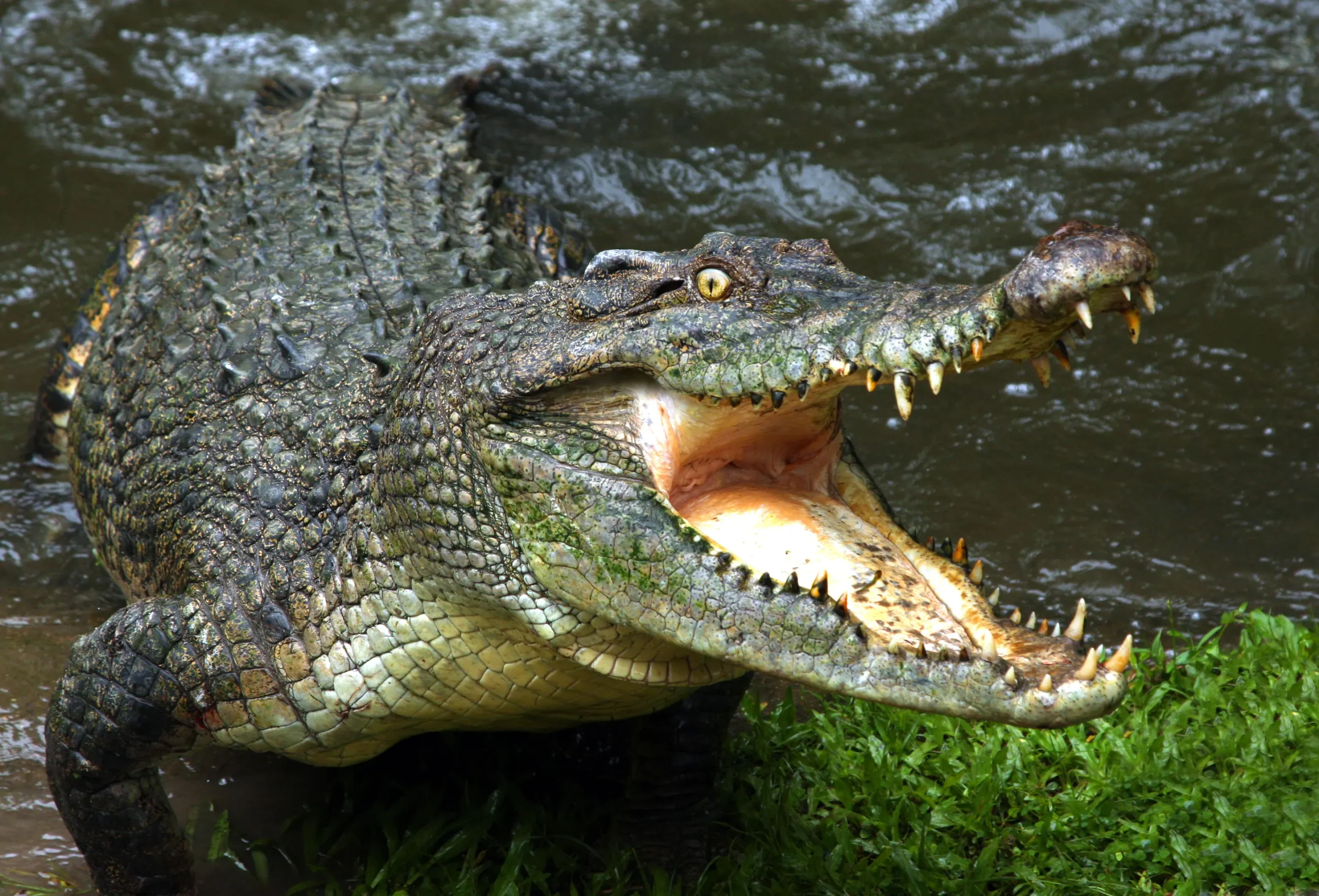Saltwater crocodiles are known for their frightening characteristics, such as their deadly attacks, causing around 1,000 human fatalities each year. Surprisingly, the country with the highest number of these incidents is Indonesia, where approximately 1,000 crocodile attacks occurred in the last decade.

In this ten-year span, 450 individuals tragically lost their lives due to these attacks, and many more suffered injuries or disfigurement. This issue is particularly prevalent in the Sumatra island region of Indonesia, where extensive mining activities have led to deforestation and environmental degradation.
These disturbances to the natural habitat of crocodiles have forced them to seek refuge near mining sites, often in close proximity to human settlements. Consequently, human-crocodile confrontations and attacks have been on the rise. In response to these incidents, local residents have hunted and killed crocodiles. However, a more sustainable and responsible approach would be to involve conservationists in managing crocodile populations.
Illegitimate wildlife trade further exacerbates the problem, resulting in the deaths of many crocodiles. Each year, approximately 100,000 crocodiles are killed for their valuable skin and meat. Saltwater crocodiles, known as the world’s largest reptiles, can weigh up to a remarkable 1,000 kilograms.
Although they are called “saltwater” crocodiles, these predators can survive in both fresh and saltwater environments. They boast a remarkable lifespan of over 70 years. Their jaw strength is unparalleled, exceeding that of other formidable predators like hippos and sharks. For these reasons, saltwater crocodiles are recognized as one of the most dangerous creatures in the world.
In terms of diet, crocodiles exhibit remarkable versatility. They prey on various animals, including crabs, fish, buffaloes, and even humans. However, it’s essential to note that crocodiles typically don’t initiate attacks on humans unless they perceive a threat to their territory or themselves.
Leave a Reply